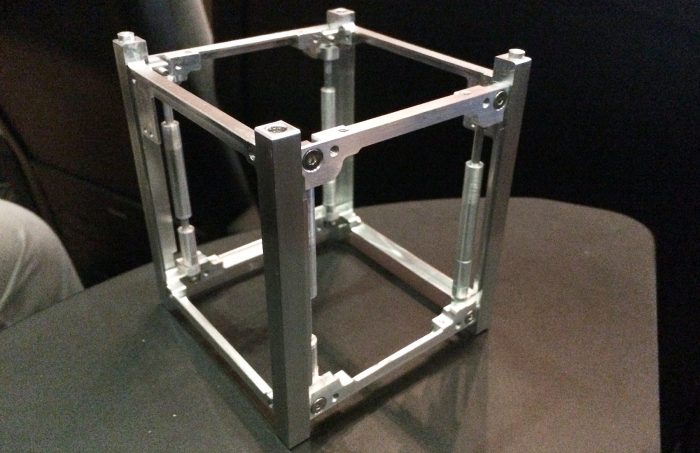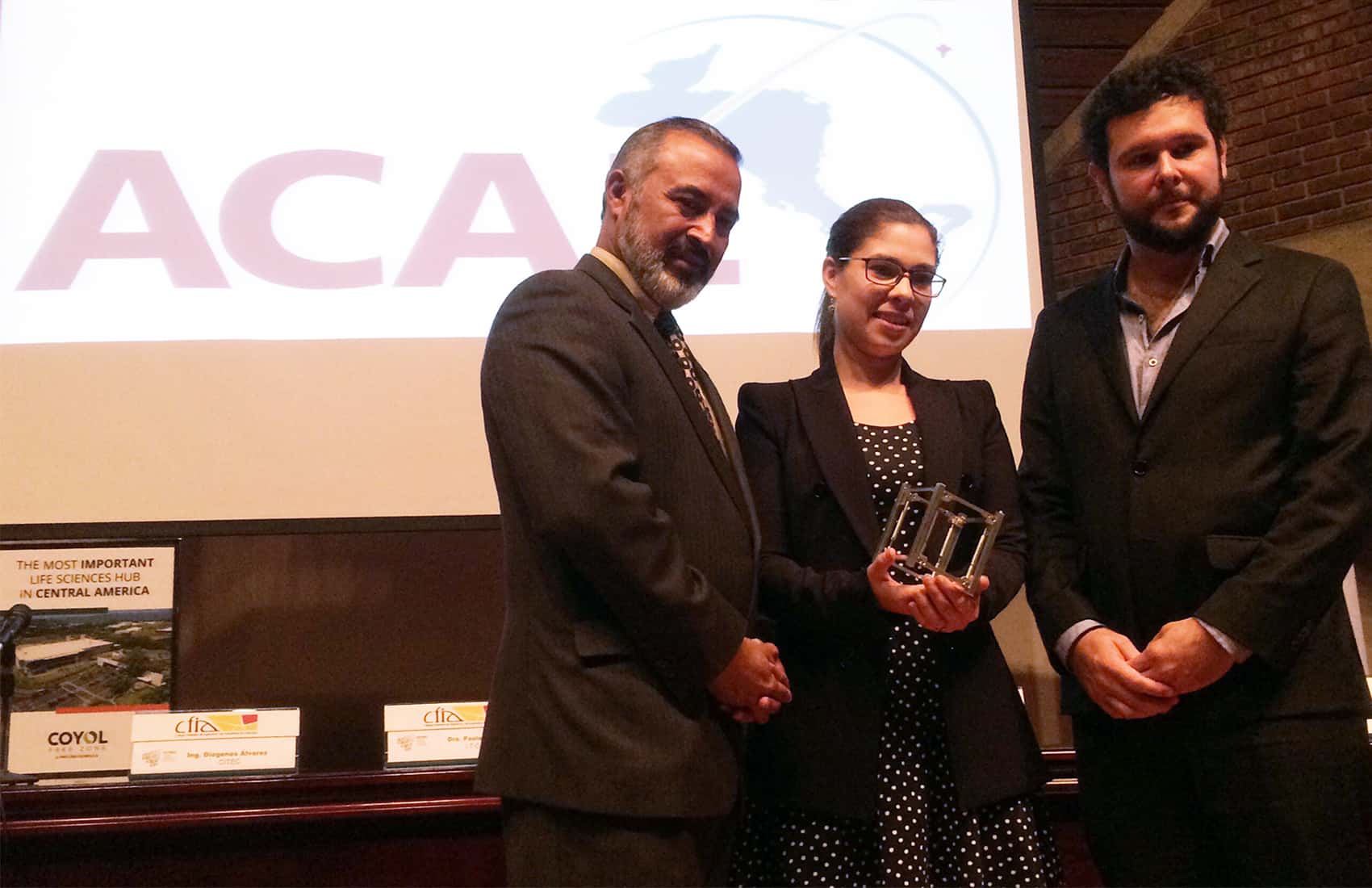Recommended: From Desamparados to the stars – Costa Rican brothers shine at NASA
The quest to send Costa Rica’s first satellite into orbit entered assembly and testing stages this week.
The 10-centimeter (4-inch) device, called picosatellite, is a key part of Irazú Project, a research program to conduct real-time measurements of temperature, humidity and carbon dioxide fixation for climate change analysis.
The Costa Rica-based Central American Association for Aeronautics and Space (ACAE) officially delivered the satellite components on Wednesday to experts of the Costa Rica Institute of Technology (TEC) who will be in charge of assembling and testing the device.
ACAE Vice President Carolina Fernández García told The Tico Times that the deployment is scheduled for next year.
The assembly and testing stage will take six months. Then the picosatellite will be sent to Japan, where experts from the Kyushu Institute of Technology will conduct final tests for six more months before the launch takes place at the Japan Aerospace Exploration Agency.
A Japanese spacecraft will take the satellite to the International Space Station for its deployment into space, “likely at the end of the first quarter of next year,” Fernández said.
Made in Costa Rica
Local engineers and technicians designed and manufactured most of the satellite’s components; some others were imported. The team in charge included 15 professors and students from TEC and from the National Training Institute (INA).
ACAE officials delivered the spacecraft frame of the picosatellite on Wednesday in a special ceremony to mark the start of the assembly stage of the project.
The metal frame will support the satellite’s other components: an on-board computer, communication system, power system, solar panels, a secondary computer, the payload and the antennae.
Professor Adolfo Chávez Jiménez of TEC’s School of Electronic Engineering told The Tico Times that in the coming months, these components will undergo more than 30 different tests and evaluation processeses to ensure that each one complies with its assigned functions.
The assembled device will also be subjected to “resistance and operation tests on environments that simulate the conditions it will face in space,” he said.
The project’s total cost is of $500,000. After six years of negotiations and research, ACAE and TEC needed to obtain the final $75,000 to finance the last stages of construction, testing and deployment into space.
The agencies obtained those funds through a crowdfunding campaign that surpassed the goal two days before its deadline. Just over 800 sponsors from Costa Rica and other countries donated to the campaign.

Climate change research
The Irazú Project takes its name from Costa Rica’s highest volcano, located in the province of Cartago.
Once in space, the small satellite will orbit Earth at a height of about 400 kilometers (249 miles) for six months. Data will be collected in Los Chiles, a mountainous area near Costa Rica’s border with Nicaragua, and will be used to evaluate climate change effects on forests.
TEC researchers will attach devices known as dendrometers to trees in Los Chiles in order to measure the effects of climate variations on their growth.
The picosatellite will collect all data and broadcast it in real time to databases at labs at the TEC’s Cartago campus, where experts will analyse the information. Scientists aim at establishing a possible relation between the amount of CO2 from climate change and tree growth.
TEC professors will also use the data in projects ranging from climate effects to numerical weather prediction. Information will be shared on a website as open data so that it can be used by researchers and students all over the world.
Space industry
ACAE President Carlos Alvarado said in a written statement that Irazú Project represents an opportunity for the Costa Rican small and medium-sized enterprises that took part in the manufacture of the satellite’s components.
Alvardo said the project demonstrates that Costa Rican talent “has the technical and professional level required at the top of the global aerospace industry.”
The project also seeks to develop skills in Tico professionals and students for participation in space-related missions, he said.
Watch a video explainer of the Irazú Project from the crowdfunding campaign.






